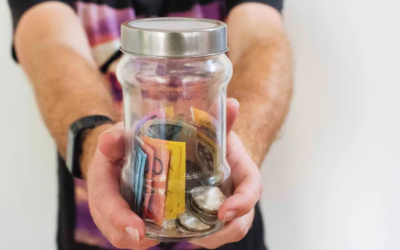Once you have arrived to the US and begin settling into your new college environment, you may start to notice that most people do not carry around much cash. Almost everywhere, including parking meters, allow for the option of paying with a debit or credit card. For those international students who plan on staying a year or more, opening up a US bank account will make almost every aspect of your financial life a little bit easier.
Why Open Up an Account?
In the US, the norm has shifted from carrying a wallet full of bills to a wallet full of cards. However, having a bank account won’t just be convenient when it comes to your personal spending, but can be useful in paying for bills and cashing checks.
- Rent & Utilities: Although most students live on campus their first year, many tend to move off campus for their second. Off-campus housing means that you´ll be renting an apartment from a private owner that may have no affiliation with your university. Many off-campus residencies provide online portals for their tenants to be able to pay rent via the internet. Many gas and electric companies also utilize an online payment system. By having a bank account you’ll be able to make all of these payments quickly and easily.
- Cashing Loan Checks: Whether you will be receiving extra money from financial aid or you will have leftover money from your student loan, you will most likely receive it in the form of a check. With an account open, it will make the process of cashing these checks easier and give you a safe and secure location to keep it stored away.
- Getting Paid: For those of you who are planning to make some extra cash by working on campus, you will learn to love direct deposit. In the US most people receive two paychecks a month. With a bank account open you will be eligible to receive direct deposit, which means that rather than receiving your check then having to go into a bank to cash it, your money will go straight to your account on payday.
Choosing a Bank
Convenience is always key, so once settled take the time to explore what ATM´s are available on campus and what branches are in the surrounding area. Be sure to speak to your international student advisor for any recommendations. Something to keep in mind is that cities tend to have regional and local banks. If you think that traveling around will be one of your priorities you may want to consider a more widespread bank so that you will have access to branches in more locations.
Checkings vs. Savings
There are two types of accounts that you can choose from: a checking account and a savings account. A checking account is what is used for day-to-day expenses such as buying groceries, going to the movies, or going out to eat. When you open a checking account you are given a debit card, which you can use to make these purchases rather than using cash.
A savings account, however, is used for that specific purpose – to save. Account holders receive low interest payments on the money that they maintain in their savings. While you have easy access to money in your checking account with your debit card, you cannot easily access your savings for spending.
Opening a checking account is the best option as a first-year student, so you´ll have that new debit card available for day-to-day use.
How to Open a Bank Account
When you have done your research plan a day to go into a branch to open an account. Some banks offer over-the-phone or online assistance, but because of your status as an international student it may be best to go in person to clear up any doubts. When you go in, you will need to present the following:
- Your full name, home address, home telephone number, your campus telephone number, and your college address (i.e. utility bills or apartment contract)
- Unexpired passport
- I-94 card
- I-20, DS-2019 or I-797 approval notice
- A second form of identification (passport, your Student ID card, birth certificate, state driver’s license, or a letter from the International Students and Scholars Office)
- Enrollment verification letter from your school
Different banks have different requirements so be sure to do some extra research so that you have all the forms and copies that are necessary. It is common for banks to charge a monthly maintenance fee, however some offer a fee waiver for high school and college students; so be sure to ask about what options they have available for students. Also keep in mind that you will need to have some funds available to deposit that day.
Want to learn more? Read more about the US banking system and what you need to know as an international student.





